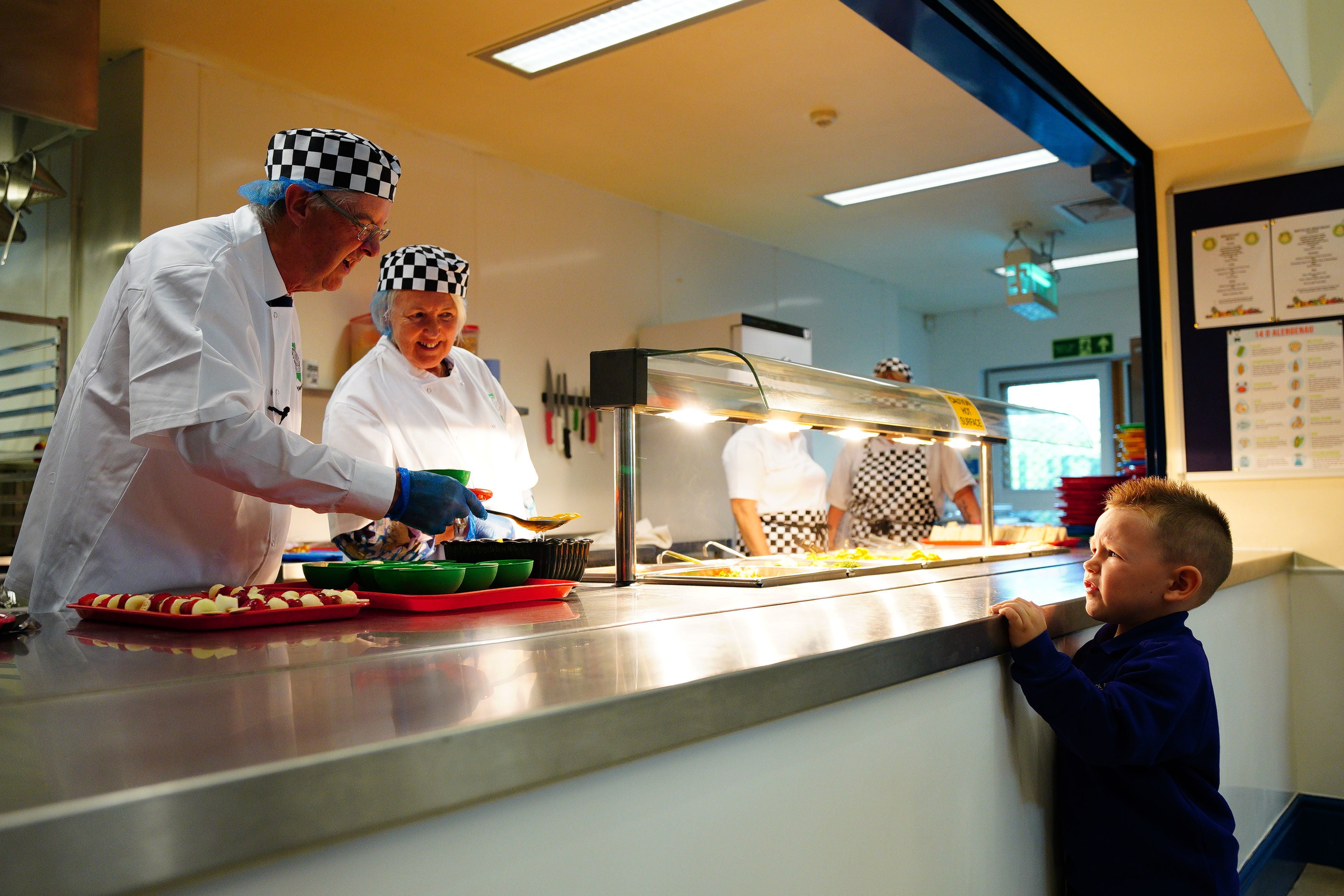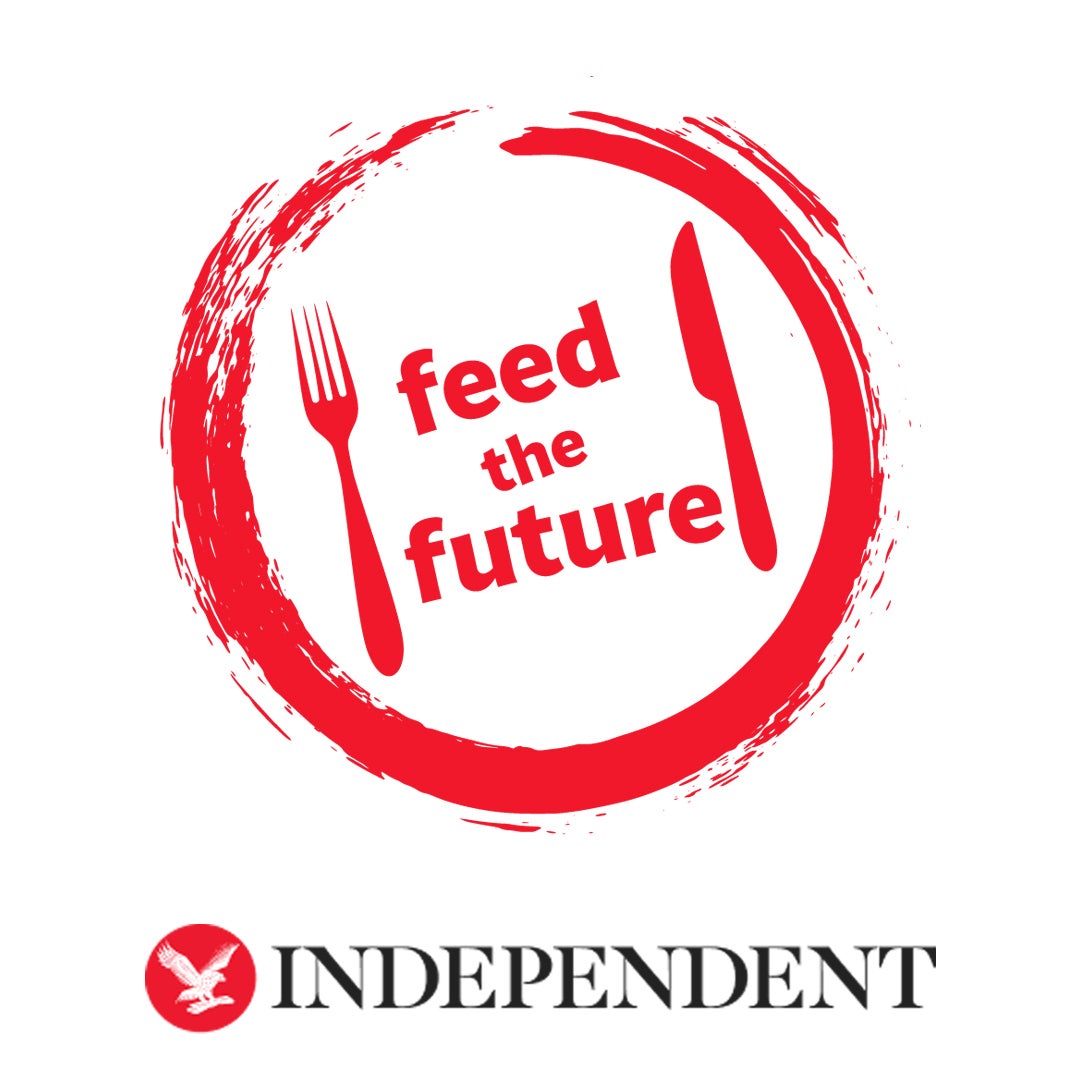Free school meals aren’t just a lifeline for children – but for schools, too
Feed the future: Schools really struggle with the fact that kids go hungry. So, they often take the hit. They absorb the costs. They stretch. Simply, there isn’t enough money in the system


Extending free school meals is good for kids, good for schools and good for our growth agenda. I want to explain why – by updating the story of Carshalton Boys Sports College, the poster boy school we used when government published the School Food Plan, 10 years ago.
Dave Holdsworth, head chef at Carshalton, will get to work on Monday and start the unenviable task of feeding 1,500 teenage boys and 200 sixth-formers. In his review of Carshalton, Giles Coren called Dave the “huge, scary head chef”, but the food, he couldn’t fault: “It wouldn’t disgrace a high-street brasserie.” The food is good here.
To make change happen, please sign the petition by clicking here
So good that the local Chinese and chip shops down the high street are devoid of sixth-formers at lunchtime – they don’t go because it’s simply better food and better value at school. And Dave does this despite the rising food prices, (25 per cent this year alone, he says), with a main lunch costing £1.60 – the same price as it was 10 years ago.
Carshalton’s governing body decided this year that food price rises must not be passed on to pupils – that the school had to absorb these extra costs. Simon Barber, the principal, and Jenny Gaylor, the vice-principal, continue to see the importance of embedding a great school food culture – and one that every single pupil can benefit from.

Jenny disclosed that “20 per cent of our pupils come from really disadvantaged backgrounds yet aren’t eligible for free school meals”, adding: “Even with lunch items starting at £1.20 this can be a real struggle for some – and we know that this won’t give our pupils the nutrition they need. So, we have a really clear policy – we will never let a child go hungry at our school. We are seeing more children build up debt on their cards, but we will take that hit for them – families simply can’t afford it.”
Carshalton’s school food finances work hard, and it is because of the high meal take-up (well over 80 per cent) and chef Dave’s careful budgeting, recycling and good relationship with suppliers that the school continues – just - to break even.
Principal Mr Barber argues: “Good food makes our pupils happy, but also helps them learn better. But it’s getting harder. And it’s especially hard for those families who are clearly struggling more, but still have to pay for school meals. Extending free school meals to that extra 20 per cent of our pupils currently missing out would be a real lifeline. It will mean they have the nutrition they need to thrive. And it will mean that our school food finances can remain break-even.”
It’s what I call virtuous economics. By extending free school meals to the 800,000 English children in poverty who aren’t eligible, not only are we stopping children going hungry, but we are providing a financial lifeline to schools. I speak to school business managers every day, and the resounding message from across the country is that schools really struggle with the fact that kids go hungry. So, they often take the hit. They absorb the costs. They stretch. Simply, there isn’t enough money in the system.
This isn’t right. If we extend free school meals, that money goes straight to our schools and our heroic school caterers. Higher take-up means better spreading of fixed costs and better buying. It also ensures that every child has a healthy nutritious meal. And research tells us that a good diet improves behaviour, improves attainment and, in the long-run, delivers better economic outcomes for our country.
Impact on Urban Health’s hard-nosed, PWC-written report last week showed that for every £1 invested in expanding free school meals, it would generate £1.38 of economic benefits – from cost savings to schools and families, savings for the NHS on obesity, as well as lifetime earnings. It all makes financial sense. Again, it’s virtuous economics.
But for now, chef Dave will continue to chat to the school council about what they think of his meals, and plan next week’s menus with the kids. Carshalton will continue to invest in their pupils, making sure that no pupil misses out – that everyone is able to eat well, whatever their circumstances. But I’m not sure how much longer schools can do this. The money is running out as food and utility inflation continues to rise.
Government inaction will fail our children and fail our schools – and in turn damage the economic future of our country.
Myles Bremner is CEO of Bremner Consulting, a food policy consultancy. He coordinates the work of the School Food Review working group, which is involved in the Feed our Future campaign. He is also the former director of the government’s School Food Plan






Join our commenting forum
Join thought-provoking conversations, follow other Independent readers and see their replies
Comments